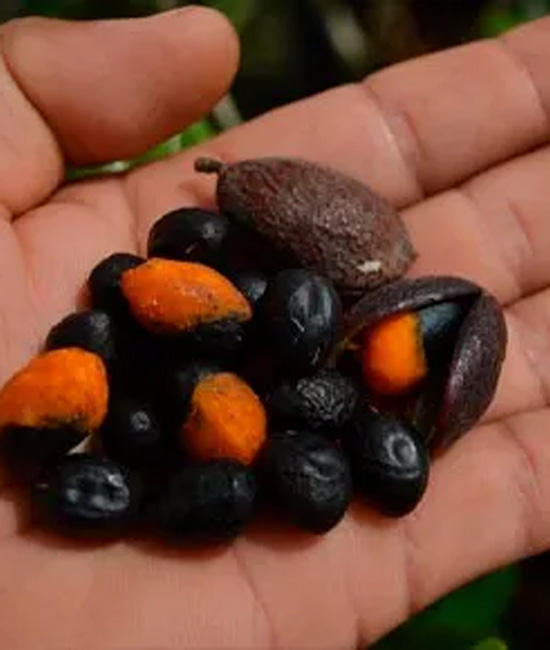Copaíba: para que serve e como usar
A copaíba é uma planta medicinal, também conhecida como copaíba-verdadeira, copaiva ou bálsamo-de-copaíba, amplamente utilizada para aliviar inflamações, problemas de pele, feridas e cortes abertos, devido às suas propriedades anti-inflamatórias, cicatrizantes e antissépticas.
Seu nome científico é Copaifera langsdorffii, e pode ser encontrada em farmácias ou lojas de produtos naturais na forma de cremes, loções, xampus, pomadas e sabonetes. No entanto, a copaíba é mais comumente usada na forma de óleo.


Como usar o óleo de copaíba
A forma mais comum de usar a copaíba é através de seu óleo, que pode ser encontrado em farmácias ou lojas de produtos naturais.
Para tratar problemas de pele, uma pequena quantidade de óleo de copaíba deve ser aplicada na área a ser tratada e massageada suavemente até que o óleo seja completamente absorvido. Recomenda-se que esse procedimento seja feito pelo menos 3 vezes ao dia para garantir os melhores resultados.
Outra opção de uso do óleo de copaíba para problemas de pele e articulações é aquecer uma pequena quantidade de óleo, que, quando morno, deve ser aplicado na área a ser tratada até duas vezes ao dia.
No caso de doenças respiratórias ou urinárias, por exemplo, pode-se recomendar o consumo de cápsulas de copaíba, com uma dose diária máxima recomendada de 250 mg por dia.

Para que serve
A copaíba possui propriedades anti-inflamatórias, cicatrizantes, antissépticas, antimicrobianas, diuréticas, laxativas e hipotensoras, podendo ser usada em diversas situações, sendo as principais:
Além disso, a copaíba pode ser usada para combater doenças que podem ser transmitidas sexualmente, como sífilis e gonorreia.
Efeitos colaterais e contraindicações
É importante que a copaíba seja usada conforme as orientações do fisioterapeuta ou médico, pois alguns efeitos podem ocorrer quando usada corretamente, como diarreia, vômitos e erupções cutâneas. Além disso, o uso desta planta medicinal é contraindicado em casos de gravidez ou lactação e em problemas gástricos.


© 2021 Seeding Amazon – Todos os direitos reservados. CNPJ: 43.963.207/0001-74
| Cookie | Duração | Descrição |
|---|---|---|
| cookielawinfo-checkbox-analytics | 11 months | This cookie is set by GDPR Cookie Consent plugin. The cookie is used to store the user consent for the cookies in the category "Analytics". |
| cookielawinfo-checkbox-functional | 11 months | The cookie is set by GDPR cookie consent to record the user consent for the cookies in the category "Functional". |
| cookielawinfo-checkbox-necessary | 11 months | This cookie is set by GDPR Cookie Consent plugin. The cookies is used to store the user consent for the cookies in the category "Necessary". |
| cookielawinfo-checkbox-others | 11 months | This cookie is set by GDPR Cookie Consent plugin. The cookie is used to store the user consent for the cookies in the category "Other. |
| cookielawinfo-checkbox-performance | 11 months | This cookie is set by GDPR Cookie Consent plugin. The cookie is used to store the user consent for the cookies in the category "Performance". |
| viewed_cookie_policy | 11 months | The cookie is set by the GDPR Cookie Consent plugin and is used to store whether or not user has consented to the use of cookies. It does not store any personal data. |